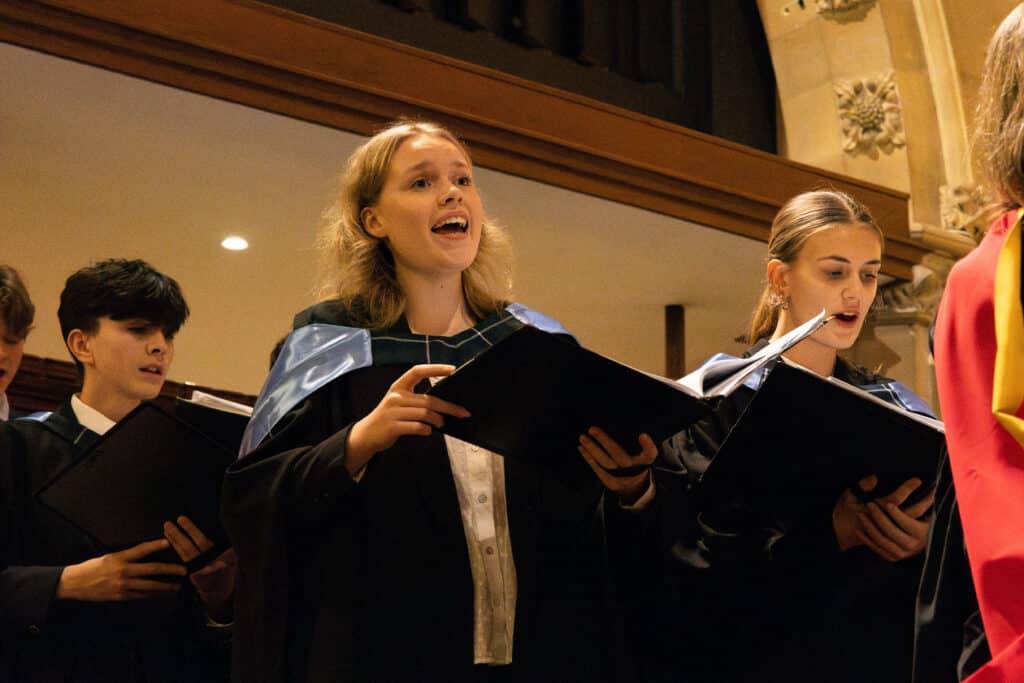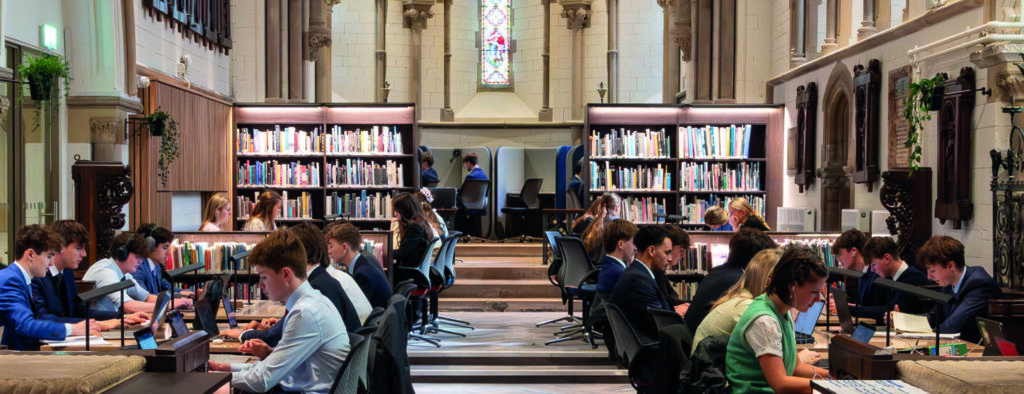From September 2024, Bradfieldians will be offered the chance to study Music via the bespoke School Based Syllabus (SBS) qualification as an alternative to the traditional GCSE. SBS: Music will assess pupils’ progress in a more contemporary way. Although the GCSE Music course is 60% coursework, there is scope for much more creativity in the way these assessments are designed, especially when a comparison is made with the new IBDP Music curriculum. Not only will this help them to develop a range of contemporary workplace skills, but the course is designed to allow those who do not always perform at their best in traditional exams to showcase their prowess through other means.
Pupils will have access to a Music course that represents even better preparation for study in the Sixth Form, one that excites them and develops their own musicianship, that intentionally develops digital literacy, self-regulation and complex problem-solving, and offers pupils greater ownership and control over their chosen area of interest. In the context of an Education for Life, where we consider what is appropriate, even essential, for our pupils in 2030 and beyond, we are now able to offer a course that develops the skills and mindset of the modern musician, whether that be concert pianist or dance DJ.
Musicians will have the opportunity to express themselves through the course’s four components: Performing, Creating, Listening and the Special Study, safe in the knowledge that they will not be assessed solely by end-of-year exams but through a broader range of assessments. These will include performances, a viva voce, a digital composing portfolio and a piece of extended project work, in addition to the traditional end-of-course exam.
The Performance element will enable pupils to set themselves targets, document their practice in a journal and reflect on their instrumental progress at regular intervals. Musicians will build up to an assessed performance which could see them take centre stage in front of an audience of their peers or individually in front of their subject teacher.
Musicians will have many opportunities to be creative while putting together a composing portfolio consisting of experiments with musical techniques and devices across a broad range of musical styles. Pupils will progress to design their brief and create a piece of music according to their personal interests, informed by musical research. The Listening and Appraising component enables pupils to study and listen to a wide range of musical styles and genres, identify musical features using musical vocabulary and is essential preparation for A Level Music.





